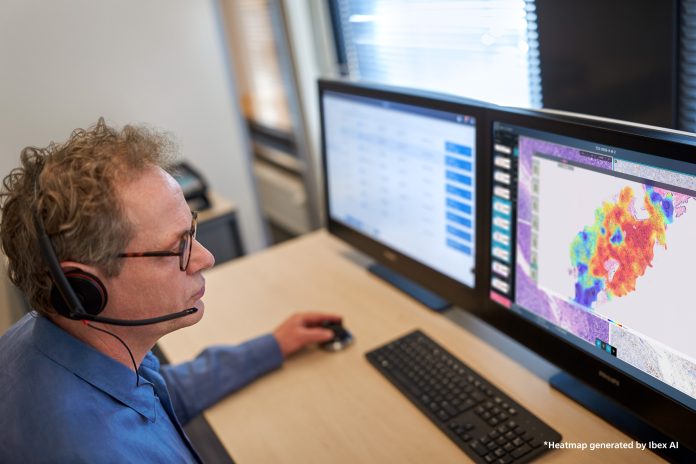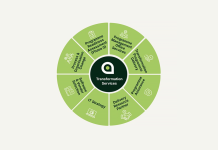When Hospital Clínic de Barcelona initiated a project to digitize its pathology department, it anticipated greater efficiency, more convenient access to studies and easier collaboration among care team members
When Hospital Clínic de Barcelona launched a project to digitise its pathology department, it expected to achieve greater efficiency, easier access to studies, and improved collaboration among care team members. However, the hospital also anticipated a significant challenge: managing the large volumes of information generated by the digital pathology system.
The hospital’s anatomical pathology service performs more than 50,000 biopsy diagnoses annually, for which more than 200,000 histological preparations are required. That volume requires considerable server resources. “Let’s consider that a single study takes up about 2 gigabytes, and we are currently handling around 300 studies per day,” said Toni Alonso, Head of Projects, Hospital General de Granollers. Stored onsite, these studies would also require significant resources in terms of IT staff, air-conditioning, energy and physical space. So, the hospital turned to a cloud-based solution.

Healthcare’s shift to cloud-based archiving
In that decision, Hospital Clínic de Barcelona is far from alone. In fact, hospitals are increasingly storing data in the cloud for a host of applications; 83% of healthcare organizations in Europe and North America now use cloud-based solutions. (1)
One reason for the growth of cloud-based solutions is rising confidence. Prior to the COVID-19 pandemic, many hospitals were concerned about how cloud storage affected HIPAA and other privacy regulations, and thought onsite storage was the more secure option. COVID-19 changed healthcare by increasing the use of telehealth and requiring access to data by remote employees,(2) and as hospitals sought solutions to these new demands, they also grew more comfortable with cloud storage.
Simplified cybersecurity
A second reason is that outsourcing data storage simplifies cybersecurity. (3) Cloud-based archives use advanced data encryption and have large staff dedicated to cybersecurity 24/7/365. In contrast, hospitals employ much smaller IT staff who count cybersecurity among many responsibilities. Cloud archives free hospital IT staff to focus on other responsibilities and reduce the burden of maintaining on-premise server farms.
Scalability benefits digital pathology
As Hospital Clínic de Barcelona and many other hospitals around the world have found, digital pathology particularly benefits from the ability of cloud archives to scale to handle large amounts of data. The scalable nature of cloud archives also accommodates the computing resources that are required by powerful artificial intelligence (AI) tools developed to assist pathologists.
“By harnessing the power of the cloud to accelerate the digitization of pathology, we are improving the quality of patient care by enabling greater workflow efficiency and collaboration at scale,” said Shez Partovi, Chief Innovation & Strategy Officer and Chief Business Leader Enterprise Informatics at Philips. “As the demand for pathology-based diagnosis continues to increase, we see digital pathology in the cloud as a critical enabler for productivity, scale and to further transform healthcare diagnostics by opening new avenues for research, education, and the integration of AI to further improve patient care.”
Collaboration is key to care
Digital pathology enables pathologists to consult with colleagues and specialists remotely. This is particularly beneficial for obtaining second opinions or expert advice without the need for physical slide transfers. Remote consultation can be done in real-time, allowing for immediate feedback and decision-making, which is crucial in urgent cases.
With an estimated 70% of important medical decisions involving laboratory or pathology tests, (4) the efficient availability of digitally stored pathology images is especially important to prevent information bottlenecks that can have a significant impact on patient care. Particularly in cancer cases, a care team of radiologists, oncologists and pathologists need tools to collaborate effectively, and a cloud-based archive provides access to pathology results even when the care team is geographically dispersed.
Pathologists in the same hospital network can share the same cloud archive, eliminating data silos and enabling pathologists at one site to read and analyze cases from patients at other sites. Adela Saco, M.D., Anatomical Pathology Specialist at the Hospital Clínic de Barcelona, explained that “Especially in complex pathologies, it ensures that the specialist with the most expertise in a particular condition is the one reviewing the case.”
Benefits research and health equity
Beyond the daily advantages for patient care, cloud archives also provide researchers with a secure source of data from a large pool of patients. These large data sets allow researchers to investigate pathologies on a scale that is impossible with siloed data and could have far-reaching consequences for many diseases.
Digital pathology and diagnostic data in the cloud also has the potential to improve the precision and speed of diagnosis and potentially even close gaps in health equity. Martijn Hartjes, Clinical Informatics Business Leader at Philips, noted, “We should not underestimate the power of cloud. It will enable scalability and access to care, and the ability to unlock data from different silos. Bringing together all the data to create a live patient view at any time during the patient journey for any clinician to look at and make a much more profound decision on the next step for that patient is going to be very critical. We always say there is a wealth of data and a poverty of insights, and combining AI technology with cloud technology can really be a game- changer – in digital pathology, but
in all other areas as well.” (5)
References:
- https://www.snsinsider.com/reports/healthcare-data-storage-market-2030 – Results are specific to the institution where they were obtained and may not reflect the results achievable at other institutions
- https://radiologybusiness.com/topics/health-it/enterprise-imaging/imaging-informatics/radiology-cloud-and-archive-storage/cloud-image-storage-radiology-growing-trend-healthcare
- https://radiologybusiness.com/topics/health-it/cybersecurity/cloud-storage-helps-solve-radiology-it-and-cybersecurity-issues-and-growing
- Report of the Second Phase of the Review of NHS Pathology Services in England, Lord Carter of Coles (2008). Results are specific to the institution where they were obtained and may not reflect the results achievable at other institutions.
- Becker’s Healthcare Podcast. Hospitals have an imperative to drive efficient care delivery: How innovation in digital pathology can help. September 17, 2024.

This work is licensed under Creative Commons Attribution-NonCommercial-NoDerivatives 4.0 International.











